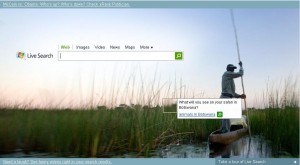Cnet broke a story about Microsoft’s BrowseRank (pdf link) about a authority ranking algorithm proposal coming out of Microsoft’s Chinese R&D labs that proposes “Letting Web Users Vote for Page Importance”. There isn’t much new to this, other than the new term “BrowseRank” as Microsoft has long viewed clickstream data as a potential way to outdo Google’s search algorithm, which like all other major search engines revolves around a page ranking system Google introduced that uses links on the web to determine authority.
Using user traffic has potential if you can aggregate enough scale, but a lot of the data is behind walled gardens. You can easily look at public web pages to count links but access to clickstream data is not as simple. Your options are to buy ISP data, to sample traffic and extrapolate, or just collect as much as you can on your own properties (only a few companies with scale to have useful data).
So ultimately this kind of algorithm is unlikely to be a groundbreaking difference and seems destined to be a supplemental part of the general ranking algorithms. We’ll see more of it and it shows promise in smoothing out link anomalies like link farms but isn’t likely going to be the core of a major search engine any time soon.
 Microsoft has launched a new design on the home page of their
Microsoft has launched a new design on the home page of their